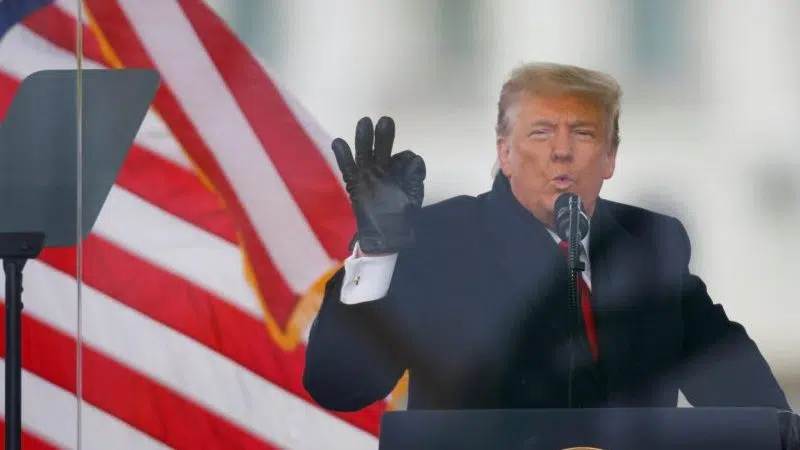WASHINGTON (Reuters) – Donald Trump on Saturday was acquitted by the U.S. Senate in his second impeachment trial in 12 months, as his fellow Republicans shielded him from accountability for the deadly assault by his supporters on the U.S. Capitol.
The Senate vote of 57-43 fell short of the two-thirds majority needed to convict Trump on a charge of incitement of insurrection after a five-day trial in the same building ransacked by his followers on Jan. 6.
In the vote, seven of the 50 Senate Republicans joined the chamber’s unified Democrats in favoring conviction.
Trump left office on Jan. 20, so impeachment could not be used to remove him from power. But Democrats had hoped to secure a conviction to hold him responsible for a siege that left five people including a police officer dead and to set the stage for a vote to bar him from ever serving in public office again. Given the chance to hold office in the future, they argued, Trump would not hesitate to encourage political violence again.
Republicans also saved Trump in the Feb. 5, 2020, vote in his previous impeachment trial, when only one senator from their ranks – Mitt Romney – voted to convict and remove him from office.
Trump is only the third president ever to be impeached by the House of Representatives – a step akin to a criminal indictment – as well as the first to be impeached twice and the first to face an impeachment trial after leaving office. But the Senate still has never convicted an impeached president.
Democrats forged ahead with impeachment despite knowing it could overshadow critical early weeks of Biden’s presidency.
The House approved the single article of impeachment against Trump on Jan. 13, with 10 Republicans joining the chamber’s Democratic majority. That vote came a week after the pro-Trump mob stormed the neoclassical domed Capitol, interrupted the formal congressional certification of Biden’s victory, clashed with an overwhelmed police force, invaded the hallowed House and Senate chambers, and sent lawmakers into hiding for their own safety.
‘FIGHT LIKE HELL’
Shortly before the rampage, Trump urged his followers to march on the Capitol, repeated his false claims that the election was stolen from him through widespread voting fraud, and told them that “if you don’t fight like hell, you’re not going to have a country anymore.”
During the trial, nine House lawmakers serving as trial managers, or prosecutors, urged senators to convict Trump to hold him accountable for a crime against American democracy and to prevent a repeat in the future. They played searing video of rioters swarming inside the Capitol and making violent threats toward politicians including House Speaker Nancy Pelosi and then-Vice President Mike Pence. The House managers said Trump summoned the mob to Washington, gave the crowd its marching orders and then did nothing to stop the ensuing violence.
The defense lawyers accused Democrats not only of trying to silence Trump as a political opponent they feared facing in the future but of attempting to criminalize political speech with which they disagreed and aiming to cancel the voices of the tens of millions of voters who backed him.
Trump’s lawyers argued the trial was unconstitutional because he had already left office and that his remarks were protected by the constitutional right to free speech. The words Trump used, they argued, were no different than those regularly employed by Democrats.
Trump’s acquittal does not end the possibility of other congressional action against him such as a censure motion. Republicans seemed dead set against an idea floated by Democrats of invoking the Constitution’s 14th Amendment provision barring from public office anyone who has “engaged in insurrection or rebellion” against the government.
(Reporting by Rick Cowan and David Morgan; Additional reporting by Jeff Mason, Susan Cornwell, Makini Brice, Ted Hesson and Michael Martina; Writing by Jeff Mason and Will Dunham; Editing by Scott Malone, Daniel Wallis and Jonathan Oatis)




